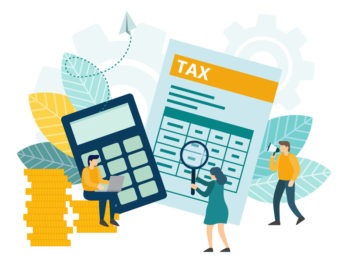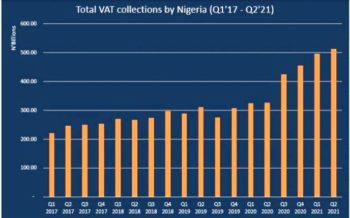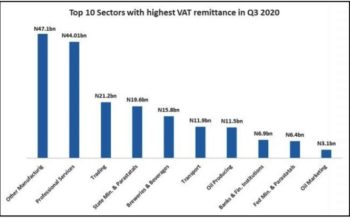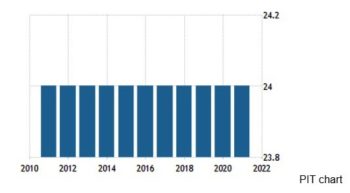The range of taxation in Nigeria as of today is 7% to 24%. Taxes generated from salaries, bills, and businesses vary by day and events and you notice drift from the normal. Are you wondering how taxation in Nigeria is sucking your income?
Wondering why taxation and tax payment plays a vital role in a country like Nigeria?
Taxation serves as a cutting edge to both developed and developing countries.
This in turn could be a yardstick to measure dependencies and Nigeria is not an exception.
Taxation in Nigeria and its usage has echoed nuance and retribution between citizens and political leaders.
Due to its economic importance to the country, It can only be frontline and not stop
What is Taxation and why Taxation In Nigeria
To keep it simple, taxation According Investopedia is a term for when a taxing authority, usually a government, levies or imposes a financial obligation on its citizens or residents. Paying taxes to governments or officials has been a mainstay of civilization since ancient times.

Paying of tax is also an easier way for the government to generate revenue from its citizens in other to carry out projects(infrastructure and social amenities) that whirl toward developing a nation.
As a citizen of Nigeria, you pay tax either directly or indirectly because it is a legal document and it’s a civil duty you should ensure in your fatherland
Market women pay taxes by collecting what is called “selling tickets”
Bike men buy tickets just to drive and make money.
READ THIS: Top 3 Effective Content Marketing Tips To Generate More Sales
Bankers, civil servants, oil workers all pay their taxes charged directly from their salaries.
There are also certain things you have to remit a certain amount of money to be granted access to. This is indirectly a tax.
Do you know that you can make more money from the same tax you are paying? Yes, and I will tell you in the next post.
Here are some of the taxes you have paid Unknowingly
Whether you know it or not, you cannot shy away from the law. Taxes must always be paid.
As an entrepreneur, you must be aware of these taxes and maximize your gross revenue and ROI
Omegapayz in one of her posts has explained an easy approach to maximizing your ROI
Here are some of the taxes in your reserve
#1. VAT – Valued Added Tax
VAT is the most pronounced tax we all have a turn to take. From electric bills to household consumables.
Nigeria has made fortune from taxation and the chart below proves that in the last 2 quarters.
VAT chart from 2017 till date

A tax you are being charged on the amount by which the value of a commodity(whether ostentatious or menial) has been increased at each stage of its production or distribution is called a value-added tax.
From the above definition, any person or organizations who purchase any of these products or service will have to pay a tax levy known as Value Added Tax (VAT).
Nigeria generated about N425 billion in the 3rd quarter of 2020 from VAT

READ THIS: How To Make Money As A Copywriter In Nigeria
Taxation in Nigeria – How To Calculate Your Value Added Tax (VAT)
According to section 4 of the VAT Act, to calculate VAT, you have a flat rate of 7% – 7.5% on all goods and services sold in Nigeria except items that are on the VAT exempt list or zero-rated.
Any product that is not manufactured here, are zero-rated and as such is tax-free
An example of such is exported goods are Laptops, cars, phones etc. All exported goods are zero-rated, that is such goods are VAT-able but at zero per cent. This means that VAT is collected from the foreign buyer and at the same time any input tax is refundable.
Under section 15 sub 1 to remit VAT, it has collected by the 30th day of the month following the month those goods or services were sold.
For example, if a business sells a product on January 1st, VAT on the sale must be submitted by February 15th of the same year to be free of any penalties. The penalty for non-remittance of VAT to the FIRS is N5,000 per month for every month that the amount is past due.
Few calculations
For your tax
VAT = 7% of total product consumption(purchased)
i.e 7/100 x product consumption
if you fail to pay January tax, you have a fine of N5,000 to remit pending when you pay.
Now, if you have not paid tax for 5 months, then here is what you will pay
Total VAT = the sum of taxes for each month + (N5000 x 5)
Taxes are not caregivers and as such you have to pay
READ THIS: Top 12 Benefits of Email Marketing For Business
Some of Nigeria Made Goods and Services Excepted From Taxation (VAT)
Some goods that are manufactured in Nigeria are exempted, which are specifically exempted from paying VAT as contained in the first schedule of the VAT Act, and such include the following
- Medical and pharmaceutical products
- Basic food items
- Books and educational material
- Newspapers and magazines
- Baby product
- Commercial vehicles and their spare parts
- Agricultural equipment and products
- Veterinary medicine
#2. PIT – Personal Income Tax
This does sound funny at all. Why should I be TAX charged from my income?
The Personal Income Tax (PIT) is the most common tax type in the country.
Over the years, the PIT stands at 24% and remains to date

This Personal Income Tax is imposed on taxpayers (individuals or organizations) according to their income or profits.
when you clear your PIT, you are given a TCC (Personal Income tax clearance certificate)
This is how TCC looks like
Tax clearance certificate
This income is where your tax will be determined and it’s called taxable income.
If your income is high, then tax will be high and vice versa.
How to Calculate Your Personal Income Tax
The calculation is straightforward and is computed as
Product of a tax rate x taxable income
#3. CIT – Company Income Tax
Company income tax is attributed only to companies whether indigenous or foreign.
According to Mondaq, the Federal Inland Revenue services operates based on the CITA and this is administered by their tiers of government( Legislative, executive and judiciary).
Under this Act(Companies Income Tax Act), it is mandatory to pay CIT if you are a resident or non-resident company incorporated in Nigeria.
The tax is classified based on an assessment which are:
- Self-assessment
- Currency of assessment
- Best of judgement(BOJ)
According to the charge rate under the Act, 30% charge is allotted to companies having more than N100 Million Naira turnover.
20% charge for companies with a yearly turnover of N25 Million to N100 Million.
The tax is assessed on a preceding year basis (i.e. tax is charged on profits for the accounting year ending in the year preceding assessment).
Any company having less than N25 Million yearly turnover is counted as “0% company income taxpayers” in line with the Finance Act 2019.
READ THIS: Top 20 Places You Can Promote Your Business For Free
#4. CGT – Capital Gain Tax
Capital Gain Tax is also for an organization registered as a company in the Nigeria Corporate Affairs Commission(CAC).
It is always a 10% charged tax and has remain 10 over the years.
Any firm that makes some capital gains are liable to Capital Gains Tax.
Capital Gains Tax is calculated and submitted with Companies Income Tax to FIRS through Designated Banks.
Failure to comply could lead to the closure of the business.
Some other Taxes in Nigeria include:
- PPT – Petroleum Income Tax
- WHT – Withholding Tax
- EDT – Education Tax
- Stamp Duties Tax
- Custom And Exercise Duties
- P.A.Y.E – Pay As You Earn
- Hotel Occupancy And Restaurant Consumption Tax, etc
READ THIS: How to Get Freelance Jobs In Nigeria:Ultimate Guide
Summary
Tax must always be paid if you have revenue generated business for the period. You are given a Tax Identification Number (TIN) when you newly register your firm.
This number is where your taxes and your fines will be recorded into
Therefore, you should consider these taxes and know the one that resonates with your kind of business before you even register as a company.
If you do not note this, then you’ll end up paying tax and making nothing out of your business. Nevertheless, you check the best profitable business ideas here for your start up.
Any further clarification will be handled if you can leave us a comment in the comment section
Please Share This Post!
READ THIS:
How To Make Money On Facebook In Nigeria – Step by Step
Top 6 Basics of Social Media Marketing All Marketers Should Know
Investment Planning Tips: Ultimate Guide
How To Grow Your Email List And Make Money Through Newsletter











2 comments
Was just flipping through your site when I met this catchy topic.
I have learnt a lot from this topic and the writing is superb and detailed.
Drop more of these digest and same patterned contents. It’s different from the rest and I enjoyed it
Thank you, we will continue to drop valuable articles.
Comments are closed.